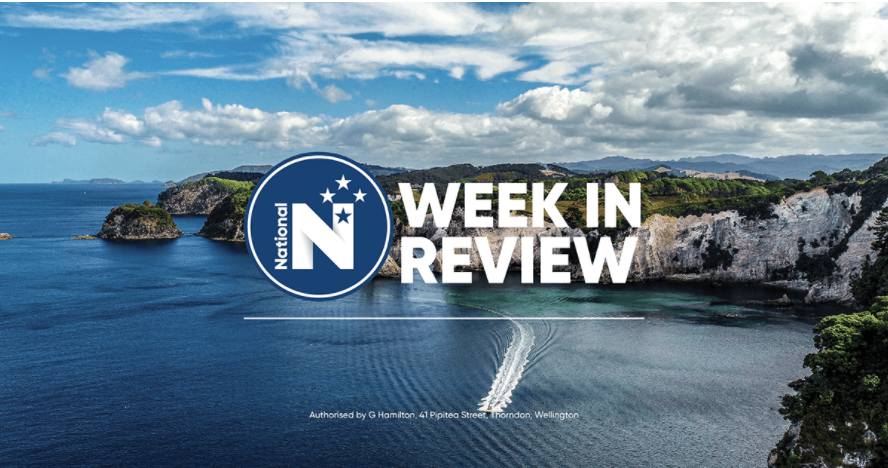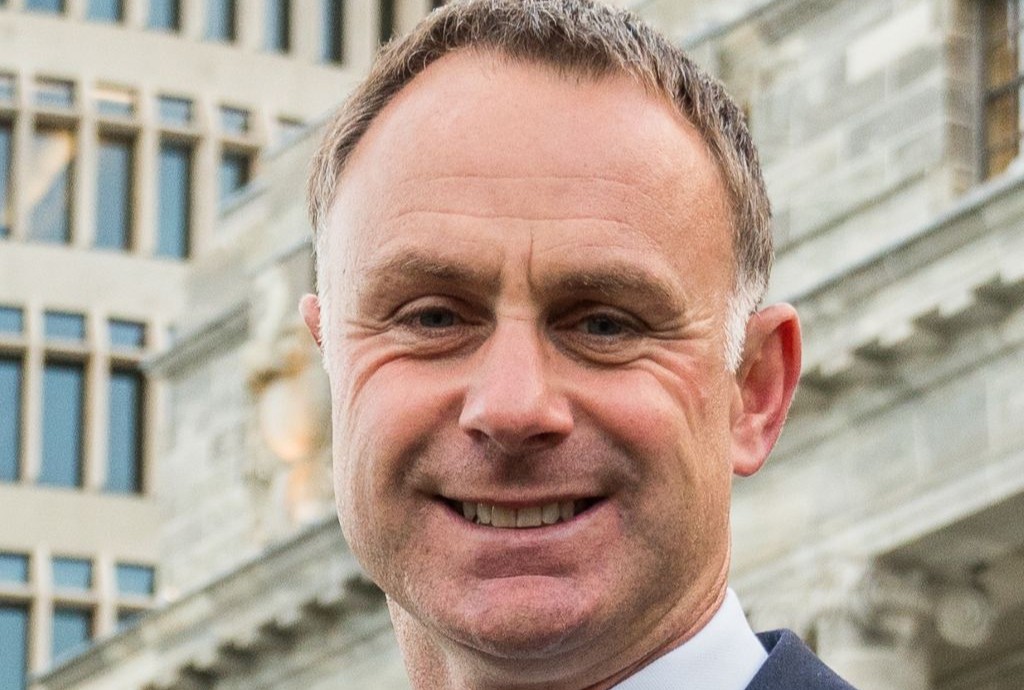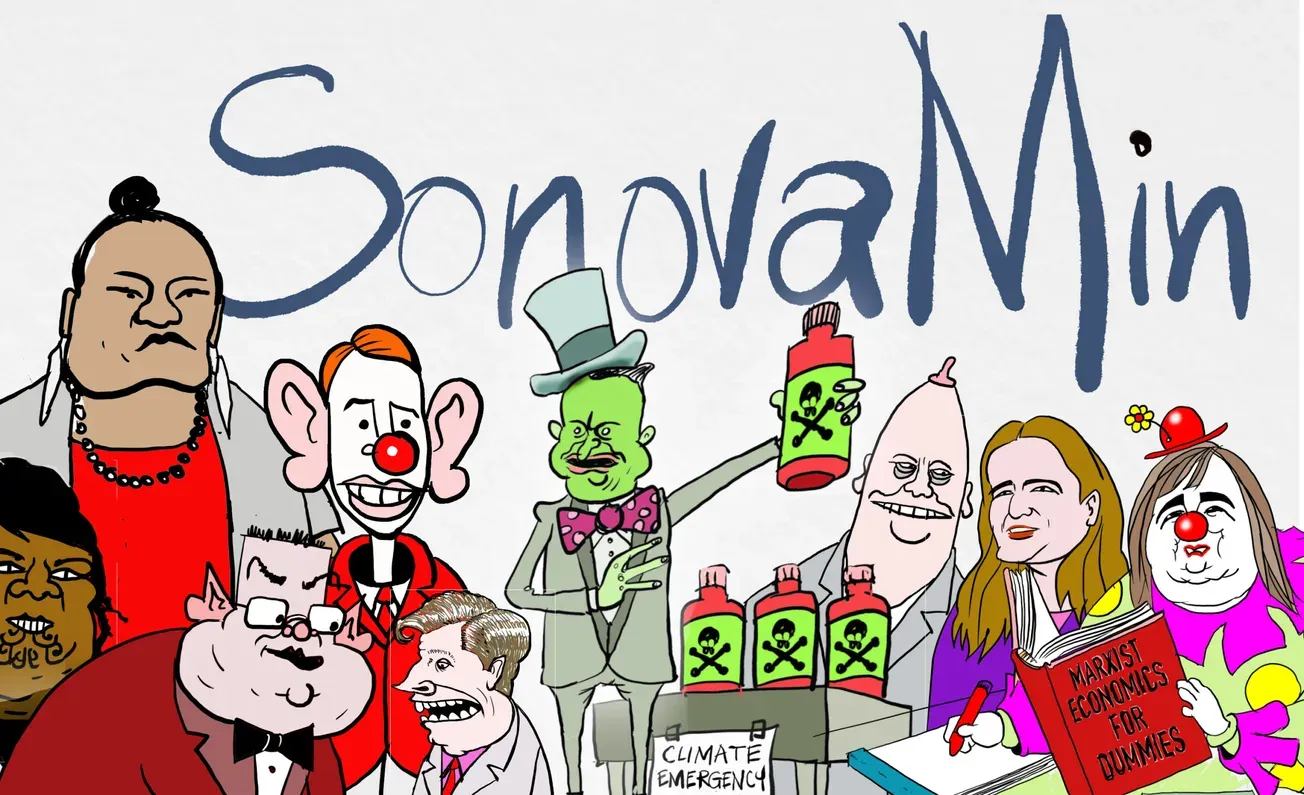Table of Contents

As Auckland remains in Level 4 lockdown, and the rest of New Zealand is in Level 2, we’re focused on holding the Government to account for their policies, decisions, and highlighting how they will affect the lives of everyday Kiwis.
Our thoughts are particularly with the Auckland Region as they face another week enduring the harshest level of current restrictions and would encourage everyone to reach out to friends and family who may be doing it tough at this time.
You can find financial support information here and health and well-being support information here. If you or a member of your family haven’t booked a vaccine appointment yet, you can do so online here.
The only way we avoid future heavy lockdown restrictions is by ensuring as many Kiwis as possible are vaccinated.
Catch up on the latest in politics with our Week in Review below.
- ‘Short and sharp’ lockdown will be the longest ever
- Lockdown extension the final straw for many battling businesses
- Robertson has emptied the Covid piggy bank
- Labour’s failure to prepare for Delta has cost Kiwis their jobs
‘Short and Sharp’ Lockdown Will Be the Longest Ever
The Government had no choice but to extend the Auckland Level 4 Covid lockdown and ongoing restrictions elsewhere in the country for two reasons: we have one of the world’s slowest vaccine rollouts, and the Government did not prepare or plan for Delta.
New Zealand was slow to sign contracts with vaccine suppliers, slow to approve the vaccine, slow to order, slow to roll-out and slow to follow-up with high priority groups. The modelling is very clear: higher vaccination rates mean shorter lockdowns.
The Government also went into self-congratulation mode for most of this year and didn’t make the investments needed to get ready for Delta, even while it was raging around the world. Saliva testing has taken a year to roll out, rapid testing is banned in New Zealand, and contact tracers have done a heroic job with limited resources.
The Government should immediately set the target of 70-75 per cent of New Zealanders vaccinated to avoid any further nationwide lockdowns. At this level of vaccination, we can stamp out Covid by using tools and techniques widely available in other counties, such as saliva testing, rapid antigen testing, aggressive contact tracing and, if necessary, regional lockdowns as a last resort.
You can read more from Judith Collins and Chris Bishop here. And more on vaccinations here.
Chris Bishop has also written an opinion piece that you can read here.
Lockdown Extension the Final Straw for Many Battling Businesses
The number of business casualties expected in the coming weeks will grow significantly unless the Government does more to protect struggling companies from Covid restrictions.
Hospitality New Zealand has said that more than 80 per cent of its members say they are not sustainable after four weeks at Level 4, meaning they are likely to have to close their doors permanently. Some 50,000 people lost their jobs in the first lockdown, and many are still on a benefit.
Given the potential devastating economic impacts for Auckland, National believes that the Government urgently needs to:
- Confirm as soon as possible that the Wage Subsidy and Resurgence payments will continue to be paid to those qualifying companies at Level 2.5 or above.
- Implement immediately a Business Rental Support package to assist those companies entitled to the wage subsidy.
- Extend the Covid-19 temporary loss carry-back scheme to apply for the 2022 tax year.
- Ensure the Ministry of Social Development processes all wage subsidy payments within three working days for the self-employed and sole traders.
- Grant exemptions to Auckland businesses that manufacture critical building products that are supplied to the rest of the country to allow construction projects to progress.
- Implement a mental health programme for small business owners and their staff.
The cumulative impact of weeks and weeks of severe restriction will be devastating and long-lasting on the lives and livelihoods of Kiwis. The Government must act now and put additional support packages in place.
You can read more from Andrew Bayly here and Todd McClay here.
Robertson Has Emptied the COVID Piggy Bank
Confirmation last week that the Government has sought authorisation to spend a whopping $41 billion over and above Budget 2021 is proof that Grant Robertson is once again using the cover of Covid-19 to spend taxpayer funds on pet projects that have little to do with New Zealand’s Covid-19 response.
In the last budget period, more than $12 billion from the Covid Fund was allocated to projects that had very tenuous links or no links at all to Covid-19. Examples of that spending include:
- Three Waters reform
- Government House Building renovations
- Funding to Commercialise NZ Music
- Subsidised Insulation and Heating Refits
- Strengthening the Family Court
- Hunting wallabies
- Cameras on fishing boats
- Papua New Guinea tattoo practice and revival
- and a plethora of others that cannot be seriously viewed as Covid-19-related.
Minister Robertson’s financial chickens are now coming home to roost. We know Covid-19 has created the need to support those affected by the various lockdowns, but funding for things like cameras on fishing boats and Papua New Guinea tattoo practice and revival should be put through normal budget scrutiny, not slapped on the Covid fund tab.
Grant Robertson needs to treat the taxpayers with more respect. The Covid Fund isn’t his own slush fund for the Government’s pet projects.
You can read more from Michael Woodhouse here.
Labour’s Failure to Prepare for Delta Has Cost Kiwis Their Jobs
The latest Jobseeker figures released last week demonstrate the true impact of the Delta outbreak on employment. More than 7000 New Zealanders have moved onto the Jobseeker benefit since the Delta outbreak. That means almost 195,000 New Zealanders are without a job and dependent on Government to make ends meet.
Grant Robertson complacently said the latest lockdown would have minimal impact on unemployment as the wage subsidy would protect jobs. However, the data released last week shows the wage subsidy is not bullet-proof protection for all jobs.
The Government’s unpreparedness for Delta and failure to deliver a timely vaccine roll out means thousands more New Zealanders are now doing it tough. Demand for food hardship grants almost doubled during the first fortnight of lockdown and community organisations report even greater demand for essentials compared to the 2020 lockdown.
Bafflingly though, Social Development Minister Carmel Sepuloni admitted the Government was unprepared for this lockdown earlier last week.
The Government’s lack of basic preparedness means more New Zealanders are without work and facing hardship. If it had ramped up our vaccine rollout earlier then we may not have had to go into a lockdown and many Kiwis wouldn’t be in the difficult position they now find themselves.
You can read more from Louise Upston here.
Please share this BFD article so others can discover The BFD









